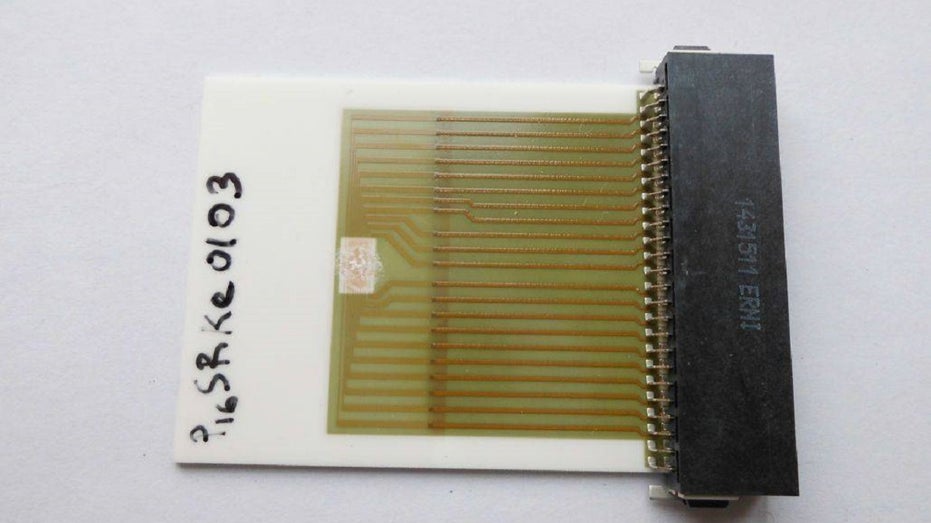A smartphone that can smell? It’s happening.

Karlsruher Institut für Technologie Allgemeine Services
At first, the idea of giving your smartphone the ability to smell could sound like a gimmick, but researchers in Germany say their new invention could potentially saves lives – by sniffing out potential hazards before humans can.
Scientists at the Karlsruhe Institute of Technology have developed a sensor for smartphones that can be taught different scents based on specific signal patterns.
The project dubbed “smelldect” can sniff out everything from spoiled foods to potential air hazards, even acting as a smoke alarm.
“In our electronic nose, nanofibers react to complex gas mixtures – i.e. scents – and also generate signal patterns, on the basis of which the sensor identifies the scents,” Dr. Martin Sommer, who coordinates the project at KIT’s Institute of Microstructure Technology, says.

The electronic nose, which is only a few centimeters in size, consists of a sensor chip equipped with nanowires made of tin dioxide that rests on many individual sensors. The chip is designed to calculate specific signal patterns from the resistance changes of the individual sensors and if a specific patterns has been taught to the chip before, the sensor can identify the scents within seconds.
However, Sommer says his team is still working out some kinks with the device, as scents do not always remain the same.
“For instance, the smell of a rose in the sun differs from that of a rose in rain. [So], currently, we are training the electronic nose for specific uses which can be chosen universally however,” he says.
But the end goal of the project is to develop a “low-cost olfactory sensor” suited for mass production and everyday use.
“In the future, the electronic nose might be incorporated into all electric devices in order to prevent cable fires. Or it can be used in smartphones. When going shopping, everybody might be accompanied by his/her own highly sensitive electronic nose,” Sommer says.



















